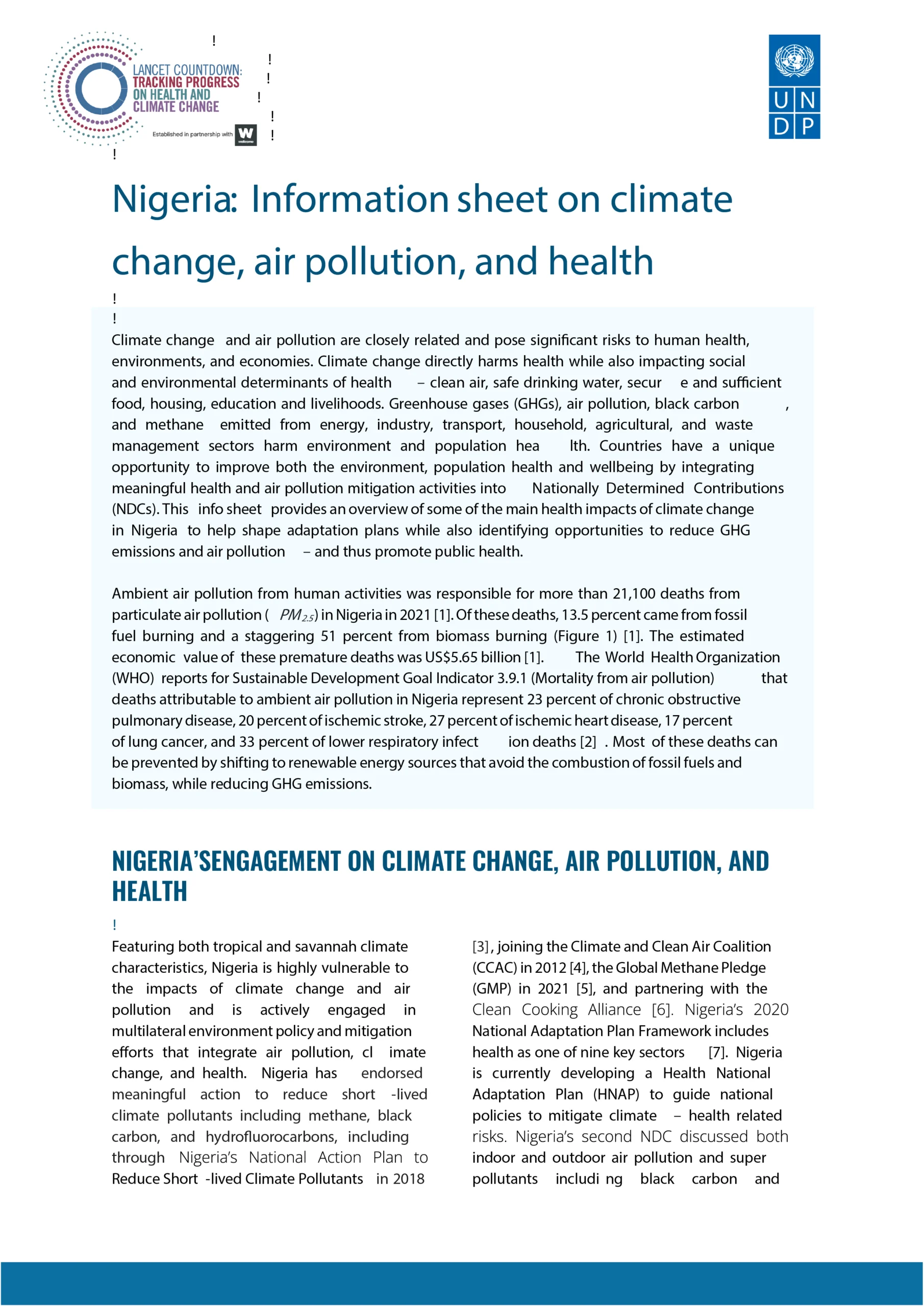Climate change and air pollution are deeply intertwined issues in Nigeria, with profound implications for public health, economic development, and environmental sustainability. The country experiences the combined effects of tropical and savannah climates, making it especially vulnerable to temperature increases, extreme weather, and pollution. Emissions from energy, agriculture, waste, and household fuel sources contribute significantly to ambient air pollution and greenhouse gases (GHGs). These pollutants—particularly PM2.5, black carbon, and methane—not only drive climate change but are directly linked to premature deaths, respiratory illnesses, and other chronic health conditions.
In response, Nigeria has shown growing commitment to addressing these challenges through integrated policy actions. The country is actively engaged in international and national climate-health frameworks. These include its National Adaptation Plan Framework, the 2020 Health National Adaptation Plan in development, and participation in global initiatives such as the Climate and Clean Air Coalition and the Global Methane Pledge. Notably, Nigeria’s second Nationally Determined Contribution (NDC) includes significant focus on air pollution and health, while its upcoming third NDC offers a key opportunity to strengthen these linkages even further. These efforts reflect Nigeria’s recognition that improving air quality can deliver major health and climate co-benefits.
The health impact of air pollution in Nigeria is staggering but preventable. In 2021 alone, over 21,000 deaths were attributed to PM2.5 exposure, with biomass burning accounting for more than half of these. The economic cost of these deaths was estimated at $5.65 billion. Fossil fuel combustion, household biomass use, and poor waste management are key drivers. Shifting to clean energy sources—particularly in households where 97% still rely on biomass—could save nearly 10,000 lives each year. Interventions targeting high-emission sectors like agriculture, transport, and waste also present opportunities to reduce GHGs and protect public health.
Climate adaptation is just as crucial as mitigation, particularly in managing the growing burden of heat, disease, and labour productivity losses. Rising temperatures are increasing the frequency of heatwaves, especially for vulnerable populations such as infants and the elderly. Between 2014 and 2023, Nigeria experienced a 150% rise in heat-related deaths among adults over 65, compared to the 1990s. Workers in agriculture—the sector most affected—lost nearly 15.8 billion hours of labour annually due to heat exposure, costing the economy over $16 billion per year. These impacts are compounded by climate-driven increases in droughts, vector-borne diseases like malaria and dengue, and widespread sand and dust storms.
To safeguard its future, Nigeria must continue aligning climate action with public health priorities. Scaling up clean energy access, redesigning cities to include more green space, and investing in climate-resilient health systems are vital. Policy reforms that reflect the dual urgency of climate and health risks—especially within the NDC process—can help save lives, improve well-being, and reduce inequality. With the right investments in mitigation, adaptation, and capacity building, Nigeria can position itself as a leader in sustainable development that puts the health of its people and the planet at the center of its progress.

